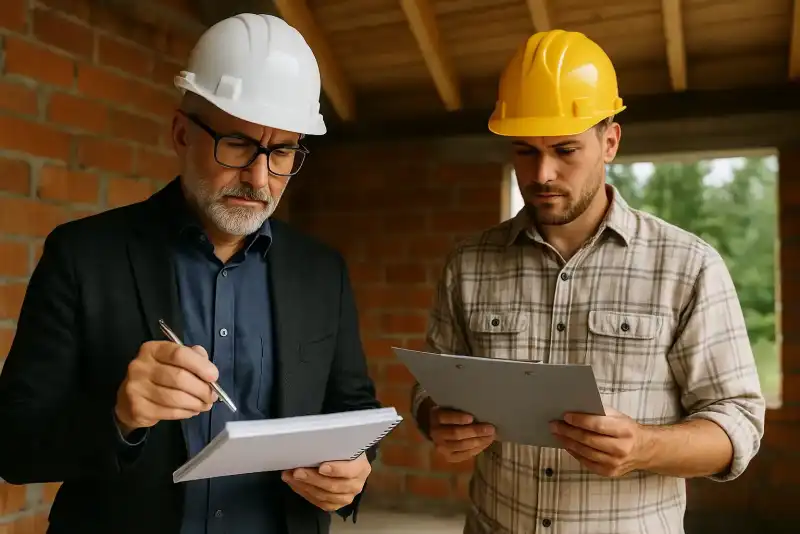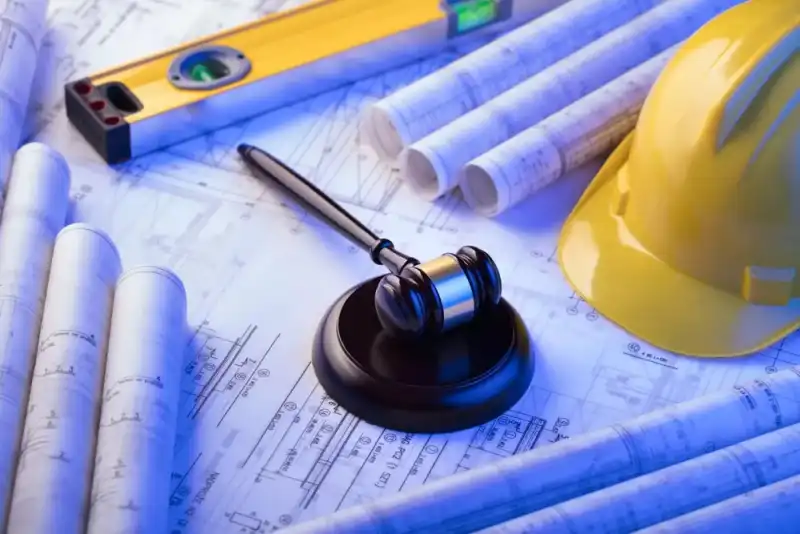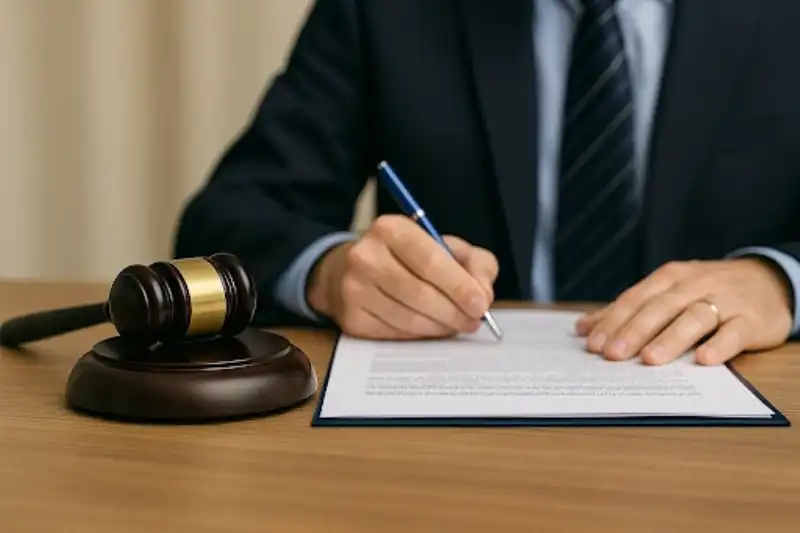Strata living has transformed the Australian housing landscape over the past two decades. With over two million Australians now residing in strata schemes and new high-density developments rising in every capital city, disputes over building defects in common property have become increasingly common. When these disputes escalate beyond negotiation, expert witnesses play a central role in helping tribunals and courts reach fair, evidence-based outcomes.
Body corporate building disputes can involve millions of dollars in rectification costs, affect hundreds of lot owners, and drag on for years without resolution. The complexity of these matters, from waterproofing failures in basement car parks to non-compliant cladding on high-rise facades, demands specialised knowledge that goes well beyond what judges, tribunal members, or body corporate committees possess.
This guide explains the role of expert witnesses in body corporate and strata building disputes across Australia. It covers the legal framework, the types of defects most commonly in dispute, the duties experts owe to the court, the admissibility criteria established in landmark case law, and practical guidance on selecting the right expert for your matter.
The value of an expert witness in a body corporate dispute lies not in advocacy for one side, but in providing the tribunal with an independent, well-reasoned technical opinion that helps resolve what is often a deeply polarising conflict between lot owners, committees, and developers.
The Growth of Strata Living in Australia
Australia has seen remarkable growth in strata title developments since the early 2000s. Census data and industry reports consistently show that apartments and townhouses now represent a significant proportion of new dwelling approvals, particularly in Sydney, Melbourne, Brisbane, and the Gold Coast.
Several factors drive this trend:
- Population growth and urbanisation have increased demand for higher-density living.
- Affordability pressures push buyers toward apartments as an entry point into the property market.
- Investor activity has fuelled large-scale apartment construction, particularly during building booms between 2010 and 2020.
- Government planning policies encourage urban infill and transit-oriented development.
With this growth has come a corresponding increase in building defect complaints. Reports from bodies such as the QBCC (Queensland Building and Construction Commission) and various state fair trading agencies have highlighted the prevalence of defects in newly constructed strata buildings. The result is a growing caseload at tribunals like NCAT (NSW Civil and Administrative Tribunal) and VCAT (Victorian Civil and Administrative Tribunal), where body corporate disputes over defective common property are heard regularly.
What Is an Expert Witness?
An expert witness is a person who, by reason of training, study, or experience, is qualified to provide opinion evidence on matters that fall outside the knowledge of ordinary decision-makers. In Australian law, the role of expert witnesses is governed primarily by the Evidence Act 1995 (Cth) and its state equivalents.
Section 79 of the Evidence Act 1995 provides the gateway for expert opinion evidence. It states that opinion evidence is admissible where the witness has "specialised knowledge based on the person's training, study or experience" and the opinion is "wholly or substantially based on that knowledge."
This is a critical distinction. Expert witnesses are not advocates. They do not argue a case on behalf of the party that engaged them. Their overriding duty is to the court or tribunal, and their evidence must be independent, impartial, and grounded in their genuine professional opinion.
For a detailed overview of how expert witness reports are structured and used in legal proceedings, see our guide on expert witness reports explained.
Why Expert Witnesses Matter in Body Corporate Disputes
Body corporate building disputes present unique challenges that make expert evidence essential. Unlike a single residential dwelling where the homeowner deals directly with the builder, strata disputes involve multiple stakeholders with competing interests.
Multiple Parties and Complex Interests
A typical body corporate building dispute may involve the body corporate (owners corporation), individual lot owners, the original developer, the head contractor, subcontractors, design consultants, and insurers. Each party may have a different perspective on the nature, cause, and extent of defects.
Technical Complexity
Building defects in multi-storey strata developments are often technically complex. A water leak in a unit on the fifth floor may originate from a waterproofing failure on the roof, a defective window installation on the sixth floor, or a plumbing defect within the wall cavity. Tracing the cause requires specialised investigation methods, testing, and analysis.
High Financial Stakes
Rectification costs for common property defects in large strata schemes can run into the tens of millions of dollars. Special levies imposed on lot owners to fund rectification works can cause significant financial hardship. Expert evidence is critical in quantifying these costs accurately.
Regulatory Complexity
Strata buildings must comply with the National Construction Code (NCC), relevant Australian Standards, state-based building legislation, and local council requirements. Determining whether a particular element is defective often requires an expert assessment of compliance against multiple regulatory instruments.
Common Defect Types in Body Corporate Disputes
The following table outlines the most common categories of building defects that give rise to body corporate disputes in Australia.
| Defect Category | Examples | Common Locations |
|---|---|---|
| Waterproofing failures | Membrane breaches, failed shower recesses, balcony leaks, planter box leaks | Bathrooms, balconies, rooftops, basements, podium levels |
| Structural cracking | Foundation settlement, slab deflection, wall cracking, beam failures | Load-bearing walls, columns, transfer slabs, retaining walls |
| Fire safety non-compliance | Missing fire collars, non-compliant fire doors, inadequate compartmentation | Service penetrations, fire stairs, inter-tenancy walls |
| HVAC defects | Undersized systems, poor ductwork installation, condensation issues | Plant rooms, ceiling spaces, common corridors |
| Cladding defects | Non-compliant combustible cladding, delamination, poor fixing | External facades, balcony soffits, feature panels |
| Plumbing and drainage | Cross-connections, inadequate falls, failed joints, blocked stormwater | Wet areas, risers, basement drainage, roof drainage |
| Electrical defects | Non-compliant wiring, inadequate earthing, faulty switchboards | Common area switchboards, car parks, risers |
| Acoustic deficiencies | Inadequate sound insulation between units, impact noise transmission | Inter-tenancy floors and walls, plant rooms |
Each of these defect categories requires a different area of expertise. In complex disputes, it is not uncommon for multiple expert witnesses to be engaged, each covering a distinct discipline.
For further reading on how structural defects are identified and assessed, see our article on structural defect inspections.
Where Expert Witnesses Are Most Needed
Expert witnesses are called upon at various stages and in various forums across the Australian dispute resolution landscape.
Tribunals
State and territory tribunals handle the majority of body corporate building disputes. NCAT in New South Wales, VCAT in Victoria, QCAT in Queensland, and their equivalents in other jurisdictions all hear strata-related building claims. Tribunal proceedings tend to be less formal than court proceedings, but expert evidence remains essential.
For a detailed look at how expert witnesses support NCAT proceedings, see our guide on NCAT building disputes.
Courts
Larger or more complex body corporate disputes may proceed through state Supreme Courts or the Federal Court. Court proceedings involve stricter procedural requirements for expert evidence, including compliance with practice directions on expert reports and concurrent evidence (hot-tubbing).
Mediation and Conciliation
Many body corporate disputes are resolved through alternative dispute resolution (ADR) before reaching a hearing. Expert reports prepared for mediation sessions help parties understand the strengths and weaknesses of their respective positions, facilitating settlement.
Insurance Claims
Where body corporate insurance policies respond to building defect claims, insurers often require independent expert assessments before approving or denying coverage. Expert witnesses may be engaged by the body corporate, the insurer, or both.
Legal and Ethical Duties of Expert Witnesses
Expert witnesses in Australian proceedings are subject to strict legal and ethical obligations. These duties are codified in court rules, practice notes, and professional codes of conduct.
The Overriding Duty to the Court
The most fundamental duty of an expert witness is the duty owed to the court or tribunal, not to the party that engaged them. This principle is enshrined in the Uniform Civil Procedure Rules 2005 (NSW) and equivalent rules in other jurisdictions.
This duty requires the expert to:
- Provide opinions that are genuinely held and based on their specialised knowledge.
- Identify and disclose any limitations in their opinion or the data upon which it is based.
- Acknowledge matters that fall outside their area of expertise.
- Avoid acting as an advocate for any party.
- Promptly notify the court of any change in their opinion.
Code of Conduct for Expert Witnesses
Most Australian jurisdictions have adopted expert witness codes of conduct that experts must acknowledge and comply with. These codes typically require the expert to include a declaration in their report confirming that they understand and accept their obligations.
Concurrent Evidence (Hot-Tubbing)
Australian courts and tribunals frequently use concurrent evidence procedures, where opposing experts give evidence at the same time and are able to discuss and debate areas of disagreement. This process, sometimes called "hot-tubbing," requires experts to be well prepared, collegial, and willing to make concessions where the evidence warrants it.
To understand how expert witness reports differ from standard inspection reports, read our comparison of expert witness vs routine inspection reports.
The Makita Criteria: Five Requirements for Admissible Expert Evidence
The landmark decision in Makita (Australia) Pty Ltd v Sprowles [2001] NSWCA 305 established the key criteria that expert evidence must satisfy to be admissible in Australian courts. These criteria are frequently applied in body corporate building disputes and serve as the benchmark against which expert reports are assessed.
| Makita Criterion | Description | Practical Application in Body Corporate Disputes |
|---|---|---|
| Specialised knowledge | The expert must possess specialised knowledge based on training, study, or experience. | The expert must hold relevant qualifications and have demonstrated experience in the specific defect category (e.g., waterproofing, structural engineering, fire safety). |
| Opinion based on specialised knowledge | The opinion expressed must be wholly or substantially based on that specialised knowledge. | The expert must connect their opinion to their area of expertise, not offer speculation outside their field. |
| Facts or assumptions identified | The expert must identify the facts or assumptions upon which the opinion is based. | The report must clearly state what information was reviewed, what site inspections were conducted, and what assumptions were made. |
| Reasoning disclosed | The expert must disclose the reasoning process by which the opinion was reached. | The report must explain, step by step, how the expert arrived at their conclusions, including reference to applicable codes, standards, and industry practice. |
| Demonstrated connection | There must be a demonstrated connection between the specialised knowledge, the facts/assumptions, and the opinion. | The expert must show a logical chain from the evidence observed, through the applicable standards, to the opinion expressed. |
Failure to satisfy any of the Makita criteria can result in the expert evidence being ruled inadmissible or given reduced weight. In body corporate disputes involving significant sums, this can be decisive.
The Dispute Resolution Process: Where Experts Fit In
Body corporate building disputes typically progress through several stages. Expert witnesses may be involved at one or more of these stages.
Stage 1: Investigation and Assessment
Before any formal dispute is lodged, the body corporate usually engages a building consultant or inspector to investigate reported defects. This initial assessment identifies the nature and extent of defects, provides preliminary cost estimates for rectification, and forms the basis for any demand or claim.
Stage 2: Demand and Negotiation
Armed with the investigation report, the body corporate (usually through its solicitors) issues a demand to the developer or builder. Negotiations may follow. At this stage, the developer may engage their own expert to review the claims.
Stage 3: Formal Dispute (Tribunal or Court Filing)
If negotiations fail, the body corporate files a claim at the relevant tribunal or court. Expert reports are prepared in accordance with the applicable practice directions and procedural rules.
Stage 4: Expert Conferencing
Courts and tribunals often direct opposing experts to confer and produce a joint report identifying areas of agreement and disagreement. This process narrows the issues for hearing and can facilitate settlement.
Stage 5: Mediation
Many jurisdictions require or encourage mediation before a matter proceeds to hearing. Expert reports and joint expert reports are used extensively in mediation sessions.
Stage 6: Hearing
At hearing, experts present their evidence, either through their written reports, oral evidence, or concurrent evidence procedures. Cross-examination tests the reliability and credibility of the expert's opinions.
For information on how Scott Schedules are used to organise defect claims in these proceedings, see our article on Scott Schedules in construction disputes.
The Evolving Role of Expert Witnesses
The role of expert witnesses in body corporate disputes continues to evolve alongside advances in building technology and investigative methods.
Drone Technology
Unmanned aerial vehicles (drones) are now widely used by expert witnesses to inspect facades, roofs, and other areas of multi-storey strata buildings that would otherwise require expensive scaffolding or elevated work platforms. High-resolution imagery and thermal imaging captured by drones can reveal defects that are invisible from ground level.
Building Information Modelling (BIM)
Building Information Modelling allows experts to create detailed 3D models of buildings and their systems. In body corporate disputes, BIM can be used to illustrate the location and extent of defects, model water ingress pathways, and present complex technical information in a format that tribunal members and mediators can readily understand.
Thermal Imaging and Moisture Mapping
Infrared thermography and advanced moisture detection equipment allow experts to identify hidden defects without destructive investigation. These non-invasive techniques are particularly valuable in strata buildings where access to individual lots for invasive testing can be difficult to arrange.
Digital Reporting and Interactive Scott Schedules
Modern expert reports increasingly incorporate interactive elements, hyperlinked photo evidence, and digital Scott Schedules that allow parties and decision-makers to navigate complex defect lists efficiently.
Choosing the Right Expert Witness
Selecting the right expert witness for a body corporate building dispute is one of the most important decisions the body corporate or its legal team will make. The following factors should guide the selection process.
Relevant Qualifications and Licensing
The expert must hold qualifications that are directly relevant to the defect types in dispute. A structural engineer is the appropriate expert for structural cracking, while a hydraulic engineer or waterproofing specialist is needed for membrane failures. Check that the expert holds current registration or licensing in the relevant state or territory.
Experience in Strata and Body Corporate Matters
Body corporate disputes have unique procedural and practical characteristics. An expert who has experience working with owners corporations, body corporate managers, and strata solicitors will navigate these complexities more effectively than one whose experience is limited to single-dwelling disputes.
Tribunal and Court Experience
An expert who has given evidence before NCAT, VCAT, QCAT, or the relevant court will understand the expectations of decision-makers, the process of concurrent evidence, and the rigours of cross-examination.
Independence and Objectivity
The expert must have no conflicts of interest with any party to the dispute. Any prior relationship with the developer, builder, or body corporate should be disclosed at the outset.
Communication Skills
The most technically brilliant expert is of limited value if they cannot communicate their findings clearly to a non-technical audience. The expert must be able to write clear, well-structured reports and present their opinions concisely in oral evidence.
Key Takeaways
- Expert witnesses owe their primary duty to the court or tribunal, not to the party that engaged them. Independence and objectivity are non-negotiable.
- The Makita criteria establish five requirements that expert evidence must satisfy to be admissible: specialised knowledge, opinion based on that knowledge, identified facts and assumptions, disclosed reasoning, and a demonstrated connection between all elements.
- Body corporate disputes are technically complex and often involve multiple defect categories, requiring experts with specific qualifications and experience in each relevant discipline.
- Waterproofing, structural cracking, fire safety, and cladding are among the most common defect types in strata building disputes across Australia.
- Expert conferencing and concurrent evidence are standard procedures in Australian tribunals and courts, requiring experts to engage constructively with opposing experts.
- Emerging technologies such as drones, BIM, and thermal imaging are enhancing the quality and efficiency of expert investigations in multi-storey strata buildings.
- Selecting the right expert requires careful consideration of qualifications, strata experience, tribunal or court experience, independence, and communication skills.
Frequently Asked Questions
QWhat is a body corporate building dispute?
A body corporate building dispute is a legal disagreement between a body corporate (also known as an owners corporation) and another party, typically the original developer or builder, concerning defects in the common property of a strata scheme. These disputes may relate to construction defects, non-compliance with building codes, or failures to meet the standards required under the building contract.
QWhen is an expert witness needed in a body corporate dispute?
An expert witness is needed whenever the dispute involves technical building matters that require specialised knowledge to assess. This includes identifying the nature and cause of defects, determining whether construction work complies with the National Construction Code and Australian Standards, quantifying the cost of rectification, and providing opinions on appropriate repair methodologies.
QWhat qualifications should an expert witness have for a strata building dispute?
The expert should hold qualifications directly relevant to the defect categories in dispute. Common qualifications include degrees in structural engineering, building surveying, architecture, hydraulic engineering, or fire safety engineering. The expert should also hold current professional registration or licensing in the relevant state or territory.
QHow does the Makita case affect expert evidence in body corporate disputes?
The Makita (Australia) Pty Ltd v Sprowles decision established five criteria that expert evidence must satisfy to be admissible. If an expert report fails to identify the basis for the expert's specialised knowledge, the facts or assumptions relied upon, or the reasoning process leading to the opinion, the evidence may be excluded or given reduced weight. This decision is routinely applied in body corporate building disputes at both tribunal and court level.
QCan a body corporate engage more than one expert witness?
Yes. In complex disputes involving multiple defect categories, it is common for the body corporate to engage separate experts for each discipline. For example, a structural engineer may address cracking and foundation issues, a waterproofing specialist may address membrane failures, and a fire safety engineer may address fire compliance deficiencies. Courts and tribunals generally accept multiple expert witnesses where the issues genuinely require different areas of expertise.
QWhat is the difference between an expert witness report and a standard building inspection report?
An expert witness report is prepared specifically for use in legal proceedings and must comply with court rules, practice directions, and the applicable expert witness code of conduct. It must include a declaration acknowledging the expert's duty to the court. A standard building inspection report is prepared for commercial purposes and is not subject to the same procedural requirements. For a detailed comparison, see our article on expert witness vs routine inspection reports.
QWhat happens during expert conferencing?
Expert conferencing, sometimes called a "conclave," is a process directed by the court or tribunal where opposing experts meet (in person or remotely) to discuss their respective opinions. The experts produce a joint report that identifies areas of agreement and areas of disagreement, with reasons for any disagreement. This process is designed to narrow the issues for hearing and can significantly reduce hearing time.
QHow much does an expert witness cost for a body corporate dispute?
Costs vary depending on the complexity of the matter, the number of defect categories, the size of the building, and the amount of investigation required. Initial expert assessments for a medium-sized strata scheme may range from several thousand dollars to tens of thousands. For large, complex disputes proceeding to hearing, total expert costs (including report preparation, conferencing, and giving evidence) can be substantially higher.
QWhat is hot-tubbing and how does it work?
Hot-tubbing is an informal term for concurrent evidence, a procedure where opposing experts give evidence at the same time. The tribunal member or judge facilitates a structured discussion between the experts, asking questions and allowing each expert to respond to the other's opinions. This process is widely used in Australian jurisdictions and is considered an efficient way to test expert evidence.
QCan expert witness evidence be challenged or excluded?
Yes. Expert evidence can be challenged through cross-examination, where the opposing party tests the reliability, methodology, and reasoning of the expert's opinion. Evidence can also be excluded if it fails to satisfy the Makita criteria or if the expert has not complied with the applicable expert witness code of conduct. Tribunals and courts also have discretion to exclude evidence that is misleading, unduly prejudicial, or of limited probative value.
QWhat role does the QBCC play in body corporate building disputes in Queensland?
The QBCC is the regulatory body responsible for licensing building contractors and certifiers in Queensland. It also handles complaints about defective building work and can issue directions to rectify defects. In body corporate disputes in Queensland, QBCC records, including licence details, complaint histories, and compliance notices, are often relied upon as part of the evidence.
QHow long do body corporate building disputes typically take to resolve?
The duration varies considerably. Simple disputes resolved through mediation may be settled within a few months. Complex disputes involving multiple defect categories, large rectification costs, and multiple parties can take several years from initial investigation to final determination. Expert witness involvement often spans the entire duration of the dispute.
Take the Next Step
If your body corporate is facing a building dispute and you need independent, expert-level assessment of defects in your common property, our team of licensed building inspectors can help. We provide thorough, objective investigations and expert reports that meet the requirements of Australian courts and tribunals.
Contact us today to discuss your body corporate building dispute and learn how our expert witness services can support your matter.
Related Articles

What Is the Difference Between Expert Witness and Routine Inspection Reports?
Not all building inspection reports are the same. Expert witness reports and routine inspection reports serve very different purposes. This guide breaks down the key differences in depth, legal standing, audience, and cost.

How Do Scott Schedules Strengthen Construction Dispute Cases?
Scott Schedules provide a structured way to present claims and responses in construction disputes. This guide explains how they work, their benefits for tribunal proceedings, and how to prepare one effectively.

How Can Expert Witnesses Help You Win NCAT Building Disputes?
Building disputes in NSW often end up at NCAT, where expert witnesses play a key role. This guide covers when to engage an expert, how they prepare, and what makes their testimony effective in tribunal proceedings.
For a complete overview, see our guide to expert witness reports for building disputes.
Need an Expert Witness Report?
Our experienced expert witnesses support cases at NCAT, VCAT, and tribunals across Australia.

